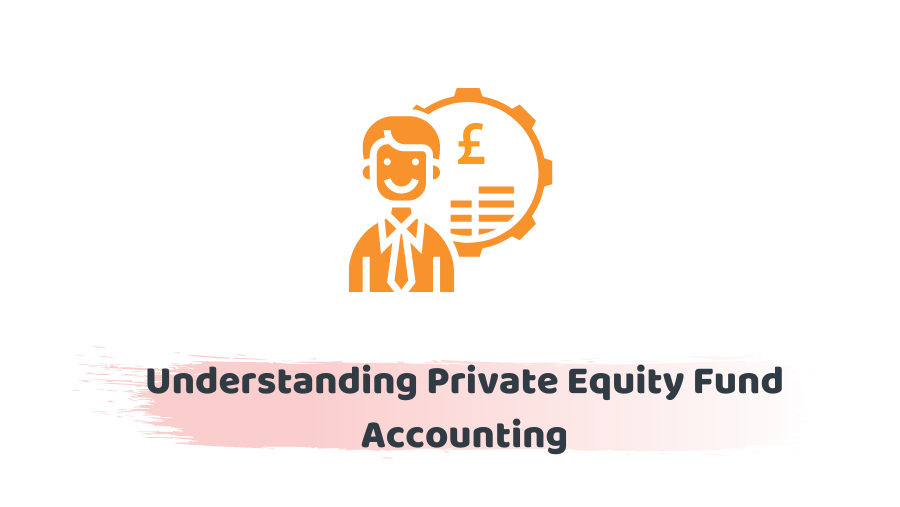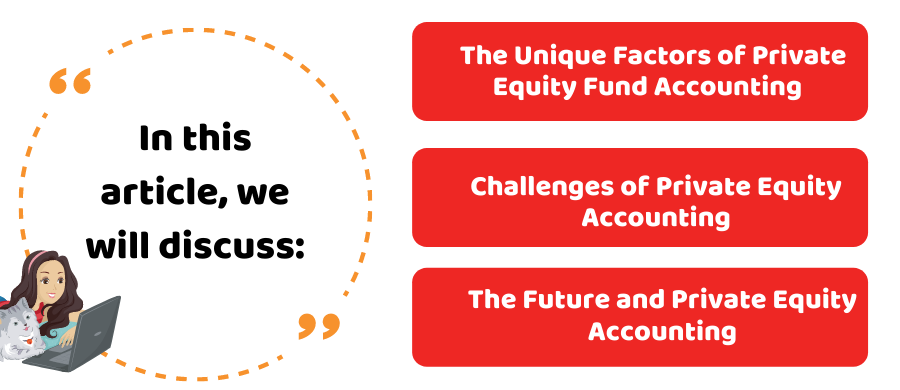If you are wondering what is private equity fund accounting or what makes it different from other accounting methods, we have got you covered here. Before we delve deep into the discussion, let’s get to know the basics of fund accounting. Basically, fund accounting refers to those methods of accounting that are used for investment funds.
In private equity, the responsibilities associated with fund accounting are often confused with traditional corporate accounting. Which includes processes like accrual-based identification of expenses and income. The verification of accounting records also comes under traditional ways. For a further discussion, this article will cover the following:
- The Unique Factors of Private Equity Fund Accounting
- Challenges of Private Equity Accounting
- The Future and Private Equity Accounting
Interested in ACCOTAX? Why not speak to one of our qualified accountants? Give us a call on 02034411258 or request a callback. We are available from 9:00 am – 05:30 pm Monday to Friday
The Unique Factors of Private Equity Fund Accounting:
Whether we talk about a non-profit organisation, private equity investment manager or an ice cream parlour, all the businesses keep a track of their business activity. This makes them channelise their financial inflows and outflows, for which an accounting ledger is required. This helps to maintain the record of basic financial events, purchases and how much money is invested.
Furthermore, the needs of private equity firms are different. The prominent factor which makes them different is the fact that the private equity firms tend to do their purchasing part with the use of investors’ funds. Whereas, other companies do the purchasing with their own funds.
This is why fund accounting is also known as partnership accounting. There are fund managers and general partners who raise the funds from the investors and limited companies to make the investment possible. In this process, not all investors make the same amount of investments.
Can’t find what you are looking for? why not speak to one of our experts and see how we can help you are looking for.
Challenges of Private Equity Accounting:
Because of its particular properties, fund accounting additionally comes with some particular challenges. These include:
Distribution waterfall calculations: These are some of the most complicated components of fund accounting. Customized LP agreements regularly cause an extensive type of waterfall structures, and the calculating of distributions turns into even extra complex as soon as one element in tiers, catch-up calculations, and different subtleties – consuming up many hours and getting to the door for errors.
The answer is simple: automate the process, but the complexity of waterfalls is lengthy and it is challenging to do so, mainly in any way that might budge actual value.
Subsequent closings: Any closure that occurs after the last date, usually to provide offers to new investors – is fund accounting challenges:
the idea itself is easy however it’s withinside the info that matters can turn out to be dizzyingly complex.
Tracking closings and calculating equalisations can turn out to be challenging, particularly as accountants accommodate more than one capital call and closings throughout more than one fund. The proper technology, though, can assist simplify the process.
Equity Technique Accounting:
Equity technique accounting is used to track income and losses up from tier entities into higher tier ones. Doing so gets one nicely replicate unrealized profits and losses in quarterly statements and different reports. This helps to reveal the correct value of one’s portfolio.
Unfortunately, many structures aren’t designed to address this methodology. Accountants are too regularly pressured to manually make entries for every entity in the course of an economic close, including an enormous quantity of time to the process. It’s possible to streamline such techniques of accounting processes.
Looking for all-inclusive monthly packages? Let us take care of your affairs so that you can focus on your business.
The Future and Private Equity Accounting:
Fund accounting, is continuously evolving and changing. One of the important things that make it prominent is advances in fund accounting software.
The focused automation is expected in future, specifically extra automatic responses allocation to investors, predicts the professionals of this field. As automation streamlines processes, it must unfasten more growing speed for better work.
Get an instant quote based on your requirements online in under 2 minutes, Sign up online or request a callback.
The Bottom Line:
To sum up the discussion of private equity fund accounting, we can say that there are many factors that make it different from traditional accounting. The future of fund accounting that is predicted by professionals is reliable as well. However, it comes with certain challenges to deal with. If dealt with professionally, this type of fund accounting can be the most beneficial. We hope this article developed a better understanding.
Disclaimer: This article intends to provide general information based on private equity fund accounting.






















































